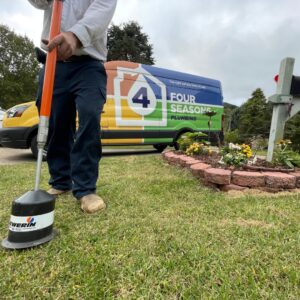During a summer hearing touting the benefits of the Biden administration’s Build Back Better Act (BBBA), Minnesota Senator Amy Klobuchar talked about the need for young people to go into careers currently experiencing worker shortages. She specifically referenced plumbers, electricians, and construction workers. It is no wonder the construction trades are so understaffed given how we have obsessed over college since the 1970s.
In the early 1900s, America boasted fewer than 1,000 colleges and fewer than 160,000 students pursuing degrees. Just under 39,000 degrees were awarded in 1910. By 1970, the total number of awarded degrees and reached 1.2 million. It was about that time that America began debating the merits of higher education versus skilled labor.
Fifty years later, American parents are obsessed with sending their kids to college. This collective obsession is being fueled by teachers, guidance counselors, and politicians who present college degrees as the golden goose. Our society has finally gotten to the point of actually making people feel as though they have no worth if they don’t have a degree.
College Grads Aren’t Superior
Our push to send every young person to college has led to this strange idea that college grads are somehow superior to people who don’t have degrees. But such thinking is absurd on its face. So is the subsequent idea that people with college degrees have better, more important, and more advanced skills.
You may be a doctor, but your college degree and state license mean very little when a plumbing problem sends raw sewage backing up through your toilet and into your bathroom. At that moment, a master plumber capable of fixing the problem is the most important worker in the world.
Speaking of plumbers, the good folks at Salt City Plumbing say that plumbers enjoy solid careers offering steady work and good pay. Salt City is a local plumbing company that serves the Salt Lake City, Utah region.
On-The-Job Training
One of the major benefits of getting into the construction trades is the availability of on-the-job training. Using plumbing as an example again, most master plumbers start out as apprentices who work side-by-side with journeyman or master plumbers until they are skilled and knowledgeable enough to pass a licensing exam.
Apprentices are paid during their training. Upon completion and licensing, they are ready to work as journeymen plumbers. They can continue working for a number of years before taking the master plumber’s exam. And at the end of it all, they don’t have hundreds of thousands of dollars in student debt to pay off. In fact, most never pay a dime for their training. They learn on the job.
According to the BLS, the median pay for plumbers in 2020 was $56,330 annually. Job growth is expected to increase by some 5% over the next decade. In short, good paying jobs in the industry are available and are expected to continue being available for the foreseeable future.
College Isn’t a Panacea
Washington politicians are slowly coming to the realization that college isn’t a panacea for whatever they think is wrong with the American labor force. Continuing to push college as the only way to an honorable career path is both foolish and destructive. Not everybody can be doctors, lawyers, and IT workers. Someone has to handle plumbing, electrical work, and all the other blue-collar trades that so frequently get a bad rap.
College being the golden goose is a myth. Remember that the next time you have to call a plumber or electrician to your home. Without a skilled labor force, good luck getting those repairs done.




